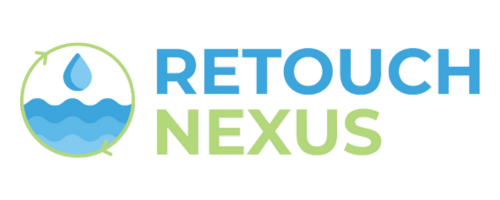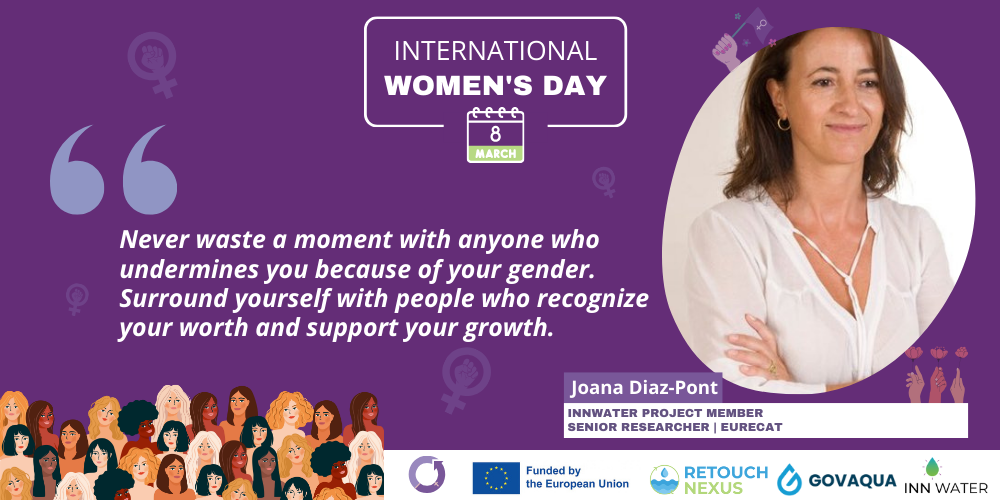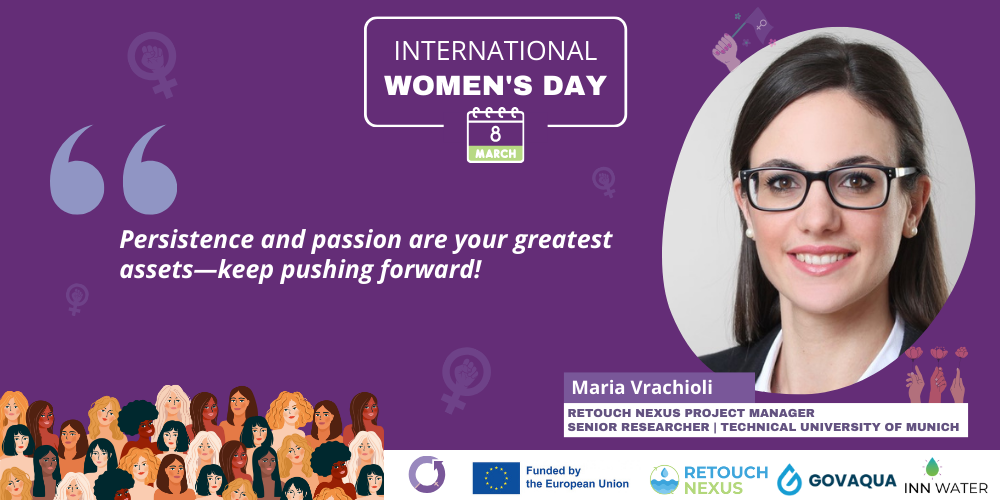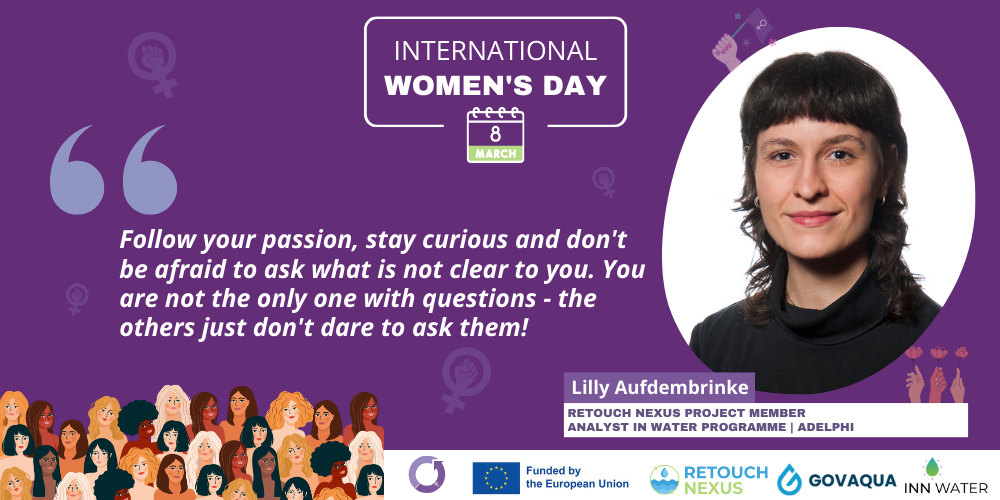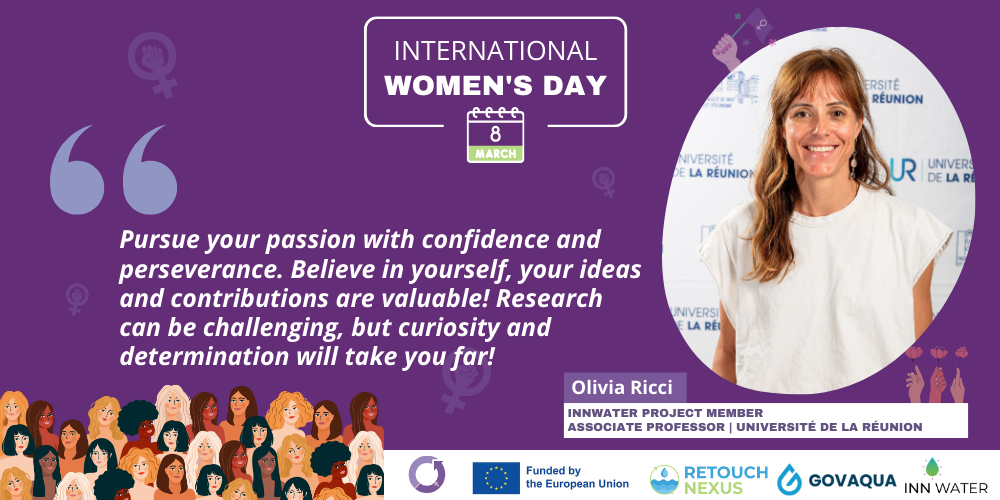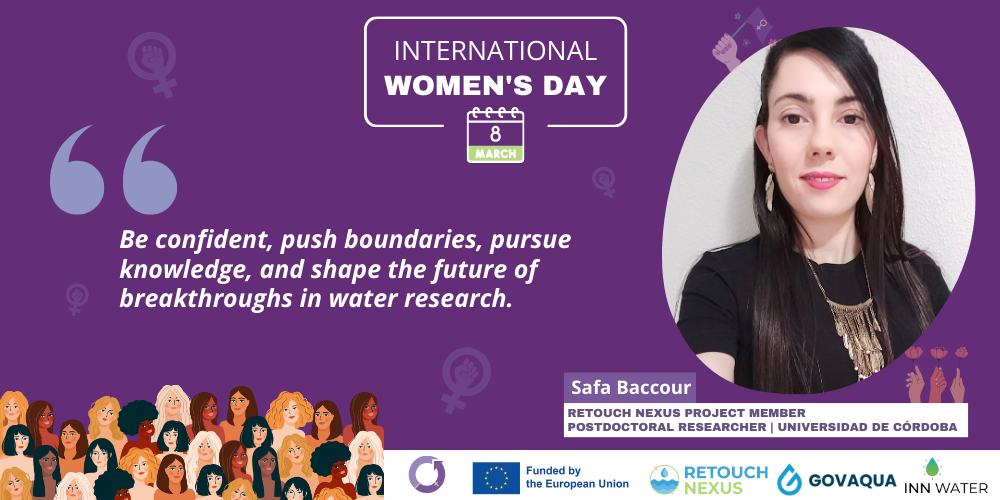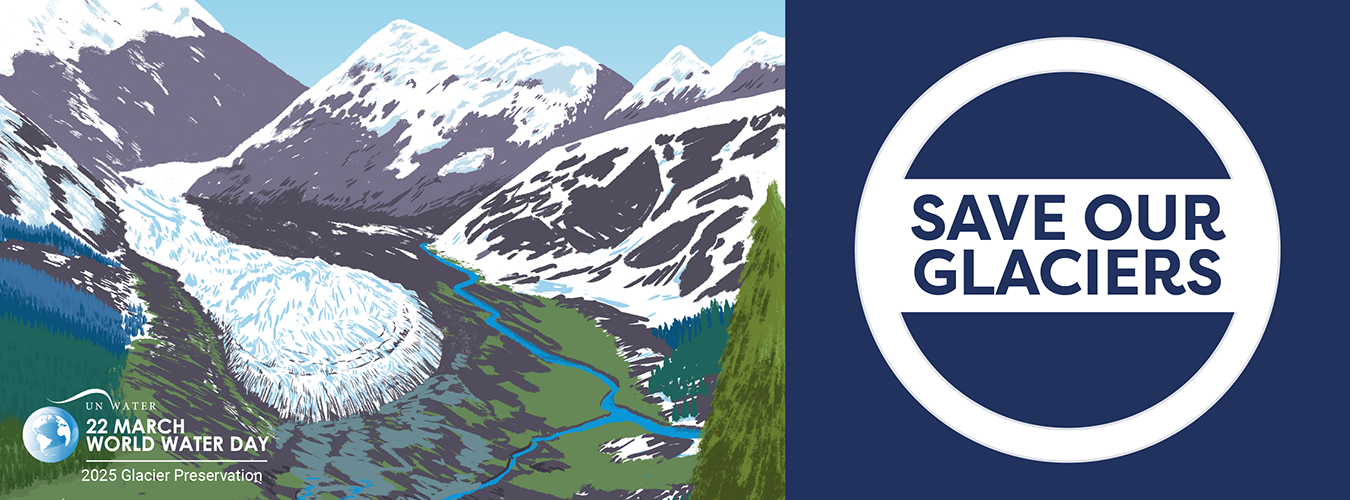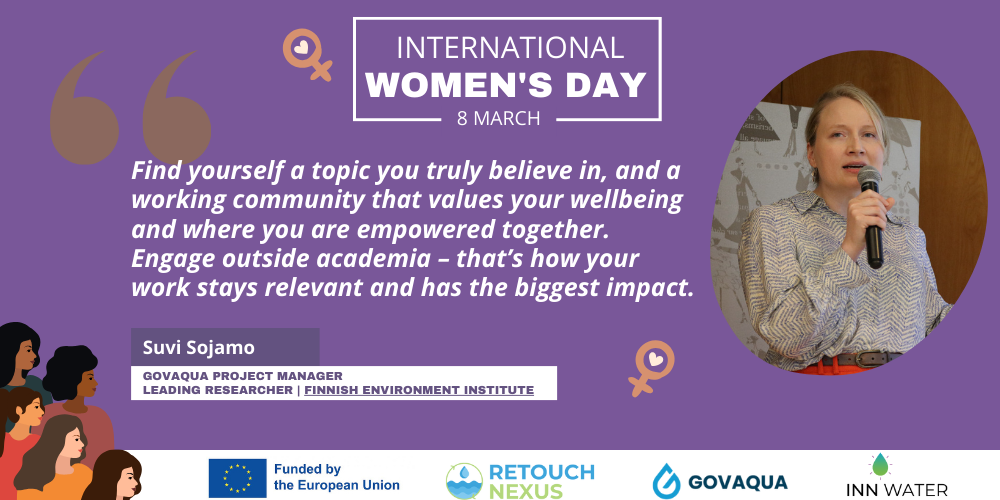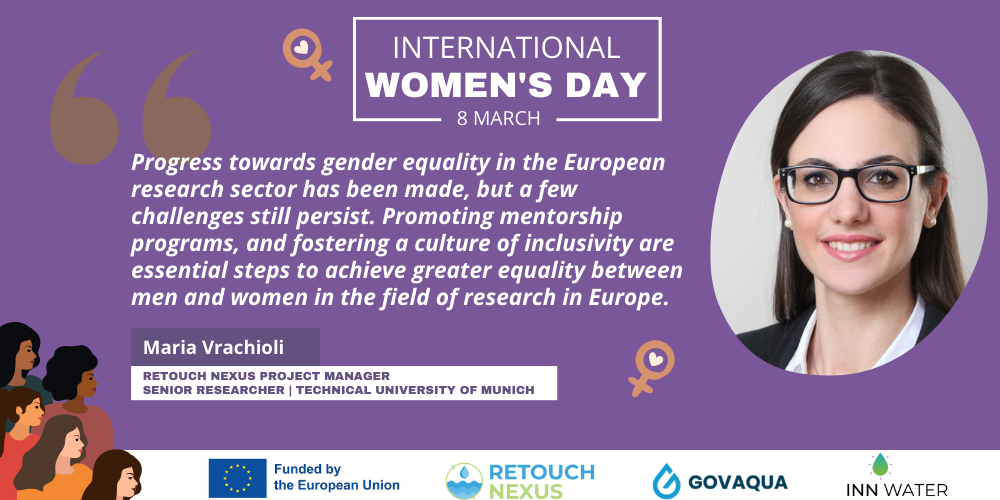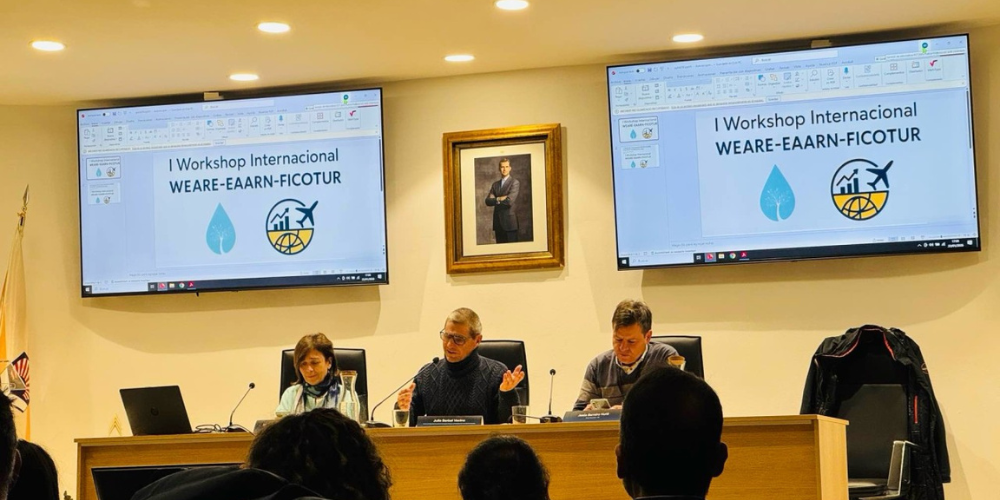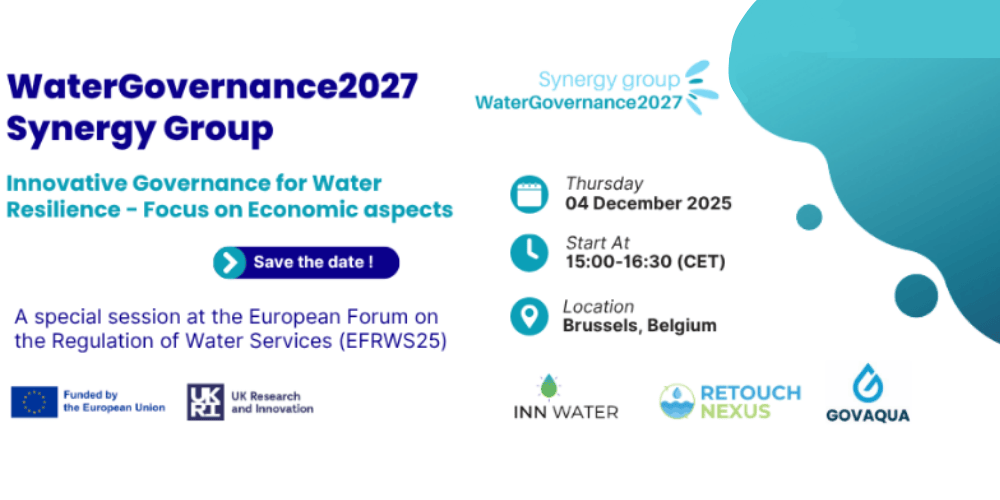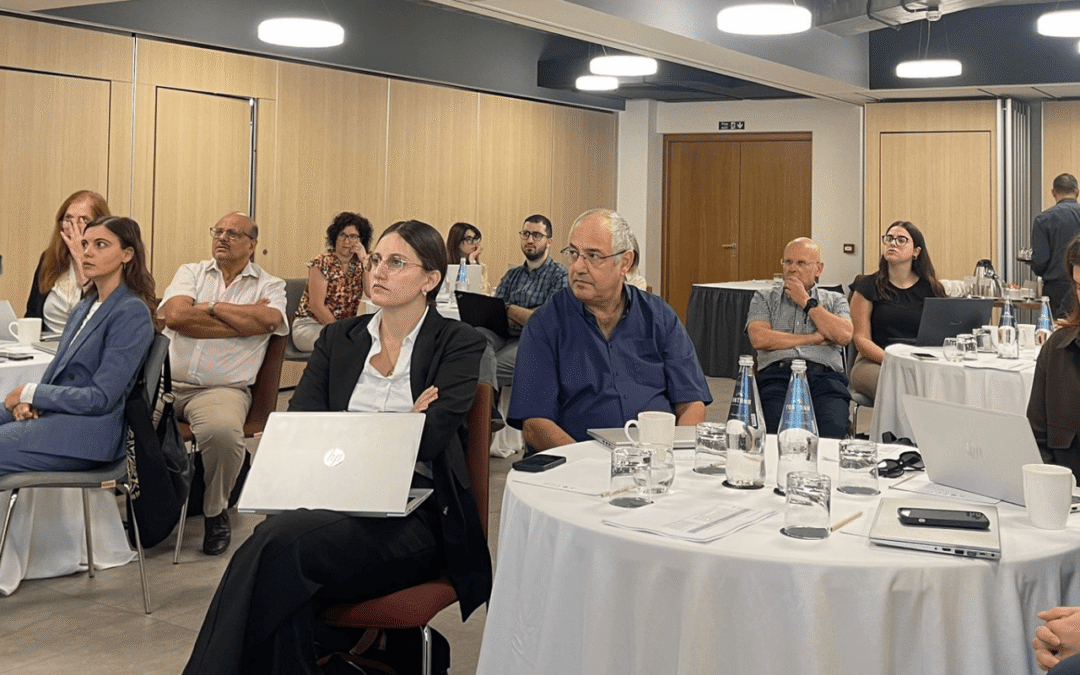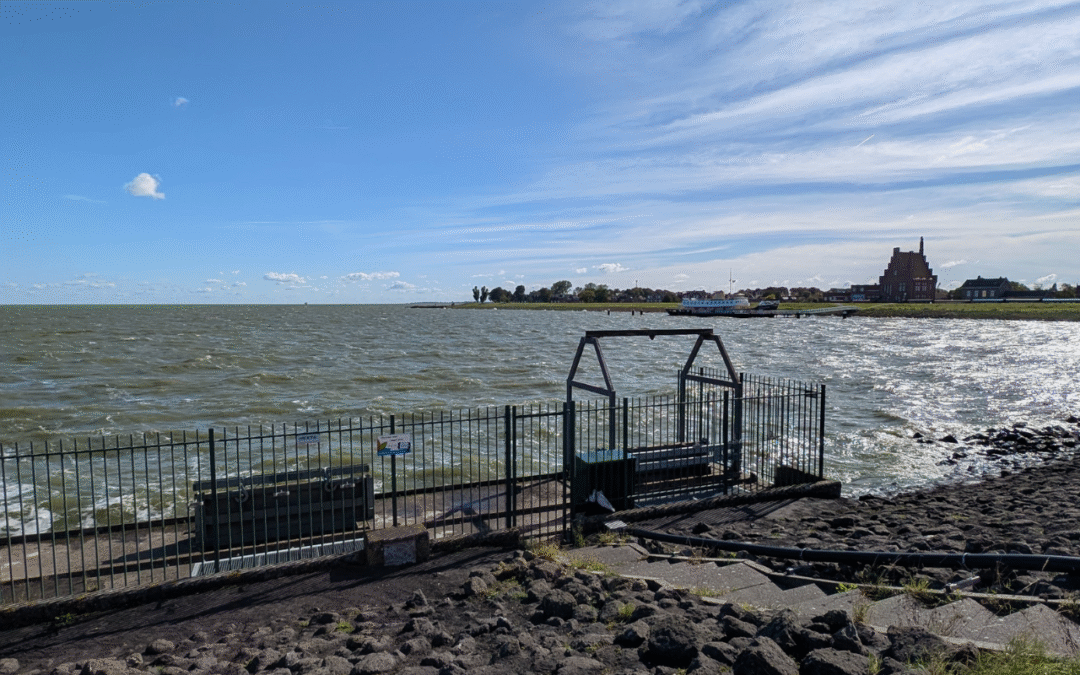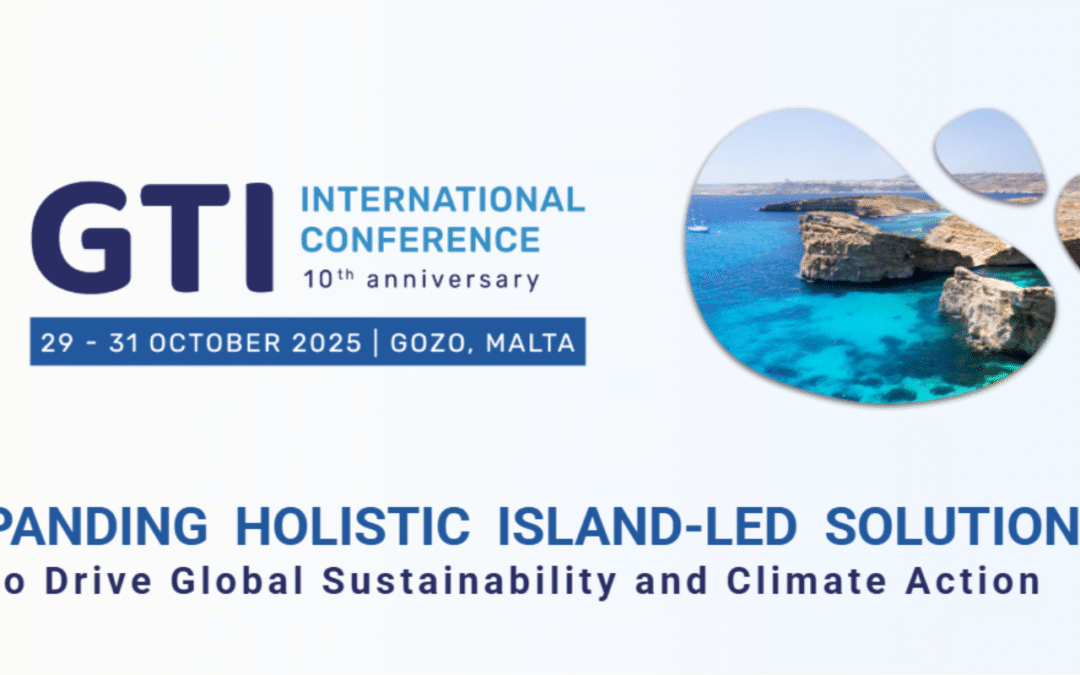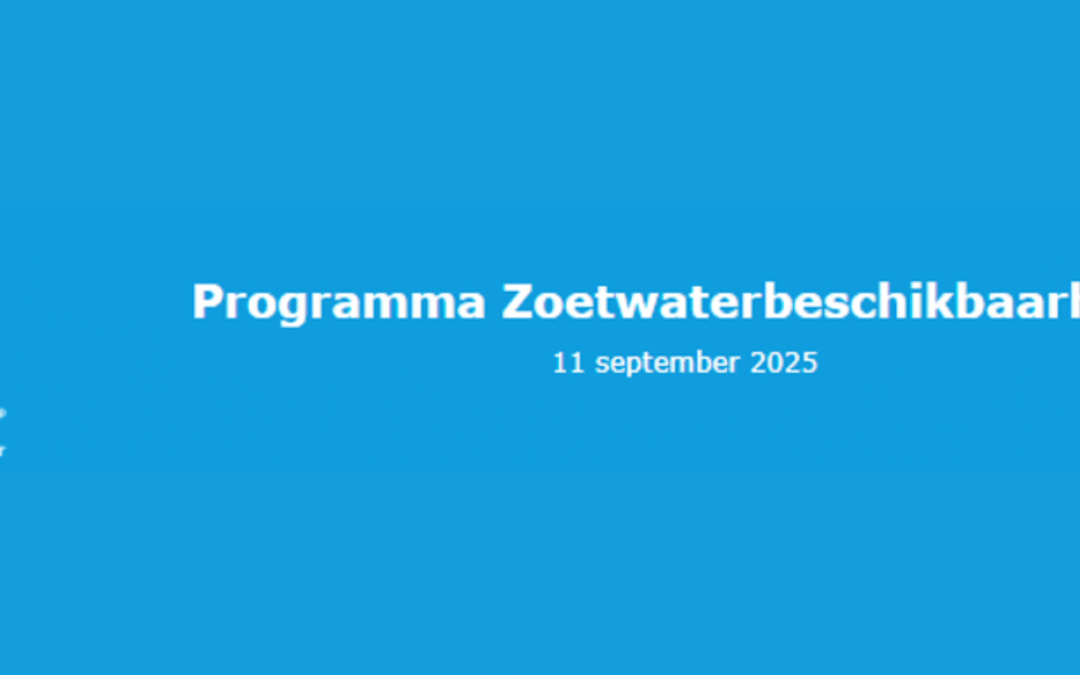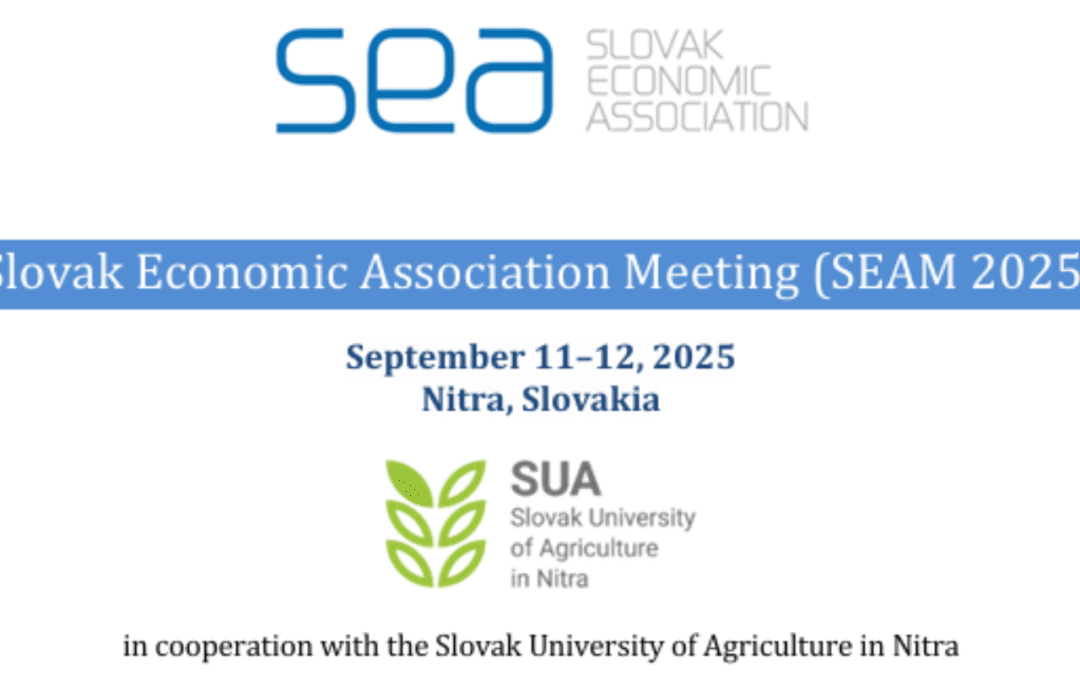Together with our sister projects of the Water Governance 2027 Synergy Group, GOVAQUA and InnWater, we are delighted to dedicate this article to our female researchers to promote their work and careers around the development of water governance approaches.
These innovative approaches take into account the interdependencies between the UN Sustainable Development Goals (SDGs) and the design of coherent water governance practices and policies at different levels and in different sectors.
As part of InnWater, we interviewed Ms Joana Diaz-Pont, Senior Researcher at EURECAT.
Career and challenges
Q.: Could you share your journey to becoming a researcher? What inspired you to pursue this path, what challenges have you faced as a woman in your field, and what is the most valuable lesson you’ve learned from these experiences?
Ms Diaz-Pont: My journey began with curiosity. As a child, I would ask my teachers endless questions about matter, water, and air. This curiosity led me to study chemistry and take my first steps as a junior researcher in environmental sciences. Over time, my interests expanded to the social sciences, as I sought to understand the human role in environmental issues. I went on to complete a PhD in sociology and have worked in the field ever since. Having navigated both natural and social sciences, I must admit that gender was never a challenge in my career. Instead, I faced obstacles related to age, particularly as a young researcher, and later, biases against my field—social sciences often dismissed as “soft”—as well as cultural prejudices from Anglophone researchers who undermined Southern European studies. Looking back, I believe transitioning between the end of second-wave feminism and the beginning of the third wave was advantageous in terms of rights and empowerment. Or perhaps I was simply fortunate to work with colleagues and friends who never made me feel that my gender was an obstacle. If there’s one lesson I’ve learned, it’s this: never waste a moment with anyone who challenges your worth based on gender.
Role in the project
Q.: What do you do within the InnWater project? How have your studies and expertise enabled you to fulfil this role?
Ms Diaz-Pont: My contribution in InnWater is related to citizen engagement in water governance. My background in social sciences is very valuable to help me go beyond technical water issues that are key in water governance (scarcity, quality, management, etc.), but not enough to transit sustainability transitions.
Europe
Q.: At European level, do you think the research sector has become more open to women? What could be done to achieve greater equality between men and women in this field?
Ms Diaz-Pont: As I mentioned, I may not be the best example of someone who has faced gender challenges in the research sector. In fact, at times, being a woman felt like a discriminatory advantage. In my time, this was due to the historically low participation of young girls in STEM, which may have limited their interest in research or abstract thinking and provided some of us with more opportunities. I don’t have the numbers, but this trend is likely already changing. If not, promoting STEM among young girls could be a good strategy.
Q.: As an expert in sustainable water governance, what do you see as Europe’s greatest challenge in implementing sustainable water governance?
Ms Diaz-Pont: From my experience, I still see many difficulties when trying to engage citizens and, particularly, vulnerable groups. The methods and tools available are often inadequate when social structures and cultural contexts do not support meaningful participation.
Q.: Finally, what advice would you give to future generations of women who want to become researchers?
“The same advice I would give to future generations of men: Never waste a moment with anyone who undermines you because of your gender. Surround yourself with people who recognize your worth and support your growth.“
Joana Diaz-Pont
Read other interviews with the researchers:
Building Resilience: Economic Instruments for Sustainable River Basin Management
Online – February 26, 2026 Join us for an expert webinar exploring innovative approaches to water governance across Europe On…
RETOUCH NEXUS Presented at the International Workshop WEARE-EAARN-FICOTUR in Córdoba
RETOUCH NEXUS was represented at the International Workshop WEARE-EAARN-FICOTUR: Establishing Networks, held on 22–23 January 2026 in Córdoba, Spain, within the session “Instruments and Policies…
Strengthening Europe’s Water Resilience: Three Projects Unite at Brussels Forum
Brussels, Belgium – December 4, 2025 RETOUCH NEXUS joins InnWater and GOVAQUA to present unified recommendations on economic dimensions of…
Check out the 5th RETOUCH NEXUS newsletter!
Are you passionate about sustainable water management and governance? 🌍💧 Subscribe to our newsletter and stay updated with the latest…
💧 Strengthening Stakeholder Engagement in Malta – RETOUCH NEXUS Workshop on the WEFE Nexus Ranking System
In October 2025, the Energy and Water Agency (EWA) hosted a new RETOUCH NEXUS Stakeholder Project Meeting in Malta, bringing…
RETOUCH NEXUS 5th General Assembly – Moving Toward Performance
As we progress through the third year of the RETOUCH NEXUS project, our consortium gathered in Amsterdam on September 23-24…
Join us at the 10th International Conference on Island Sustainability organized by the GTI Foundation
Gozo, Malta | October 29-31, 2025 Expanding Holistic Island-led Solutions to Drive Global Sustainability and Climate Action The RETOUCH NEXUS…
Informative evening for HHNK’s Freshwater Availability Programme
On Thursday, 11 September, the water authority Hoogheemraadschap Hollands Noorderkwartier (HHNK) held an information evening as part of the public…
RETOUCH NEXUS at SEAM 2025 – Advancing Water-Energy-Food-Ecosystem Governance in Slovakia
Nitra, Slovakia | September 11-12, 2025 The RETOUCH NEXUS project is proud to participate in the Slovak Economic Association Meeting…
🤝 Building a Participatory Path for Water Governance in North Holland
RETOUCH NEXUS supports stakeholder engagement for the Freshwater Availability Program. In response to the growing threat of water scarcity in…
